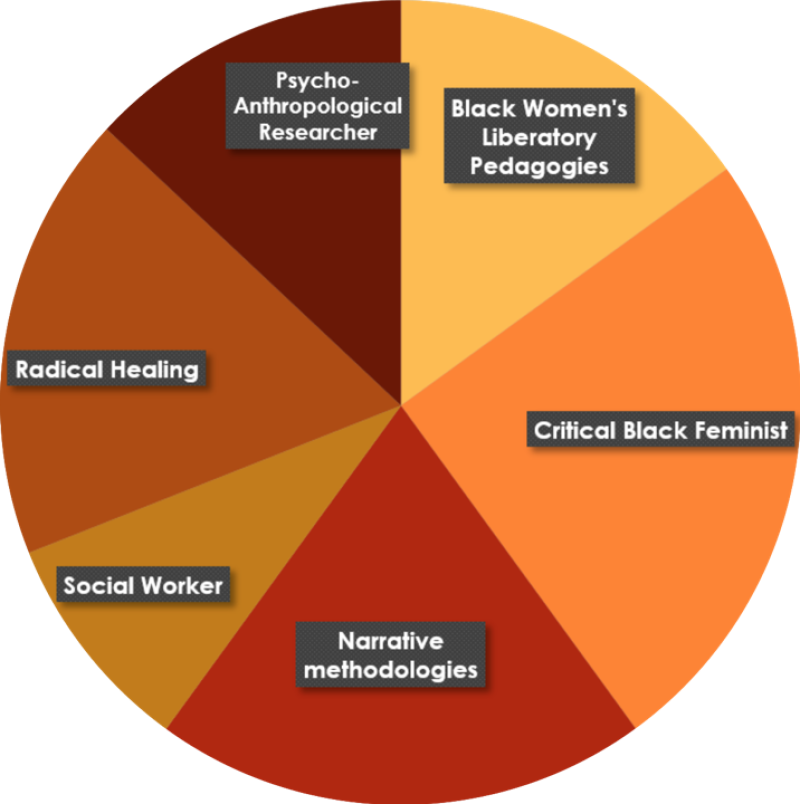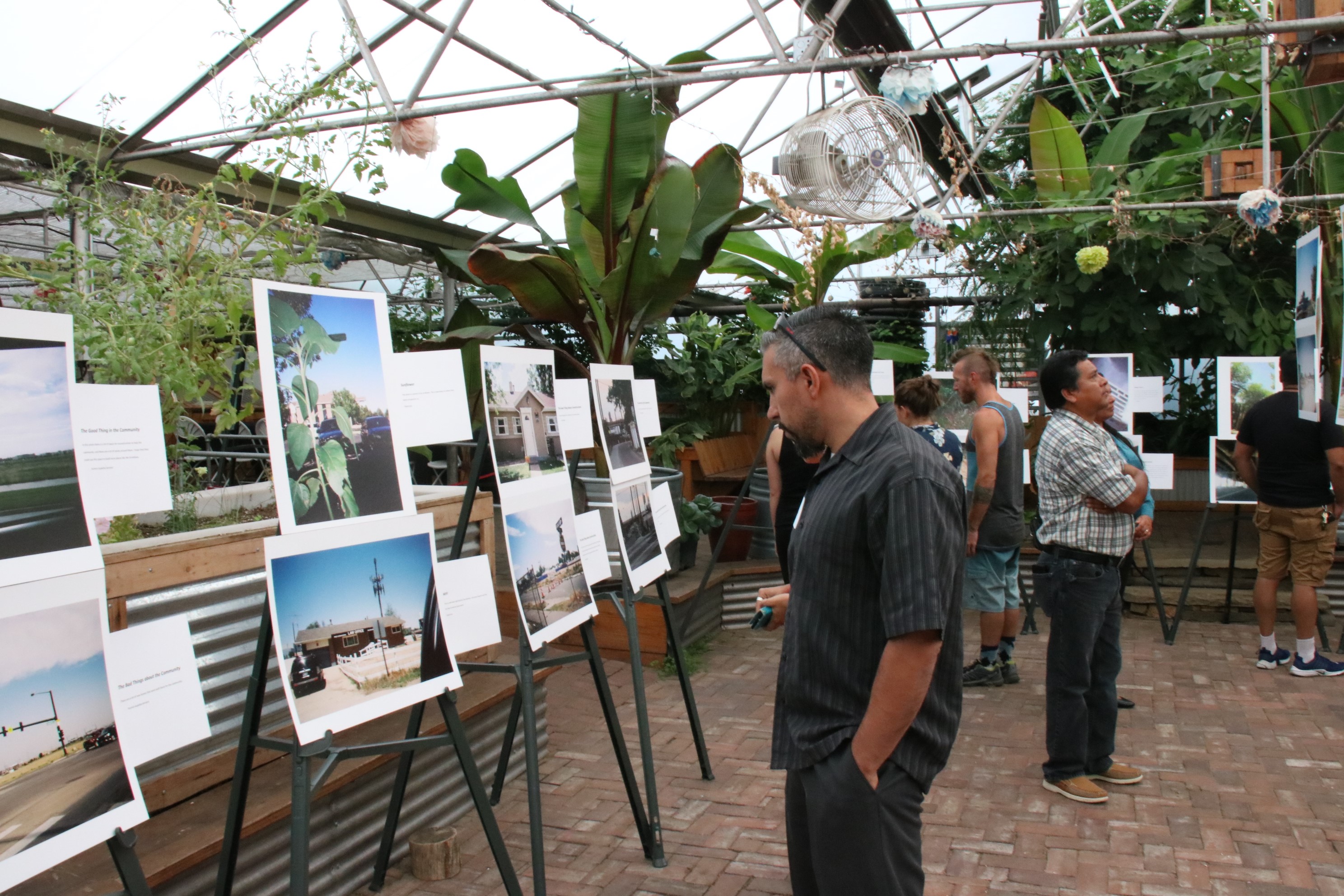Ozy Aloziem’s Positonality
By: Ozy Aloziem, Organizational Leadership & Policy Practice

My positionality begins with my female Blackness.
There will never be a day in my life when my identification as a Black woman doesn’t factor into how I am perceived or into how I perceive myself. It’s not enough for me to simply lay claim to that identity, I am also dedicated to defending it. As a psycho-anthropological researcher and critical black feminist, I am specifically committed to advocating for Black women across the diaspora. My scholarly activism is informed by Black women’s liberatory pedagogies and shaped by Critical Race Theory and Black Feminist Thought. I seek to diminish historical legacies of racial and gender oppression in the personal, economic, political and social spheres.
My positionality is rooted in my search for identity and the void I’ve often felt in the absence of it.
As an American-born child to Nigerian immigrants, I often struggled with what identity meant to me. My identity felt like this nebulous thing I could never fully grasp. I spent a lot of time mentally dissecting myself and my experiences. I paid close attention to how I was perceived and that in turn shaped how I perceived myself. I became obsessed with mixed-identity, a topic I couldn’t discuss with my parents who held onto their Nigerian identity very tightly. I often felt alone in my difference, so I turned to books.
My praxis is informed by Black women.
I read The Bluest Eye by Toni Morrison during my sophomore year of high school. It awakened something in me. I’d never before felt so seen by a book. Because of Toni Morrison, I learned how distinct Black girlhood could be and spent the rest of my adolescent years trying to find it. When I exhausted my library’s Morrison collection, I moved on to Walker, to Angelou, to Hurston. I read all the fiction they had to offer and then I turned to the women themselves to learn about their personalities and politics. I wanted to understand these Black women so that I could better understand my Black self. I continue to study Black women’s liberatory pedagogies for this reason.
My sense of place has often felt like the empty space between two things.
I was raised in a strict Nigerian house in a grossly segregated city called Omaha, NE where I always felt a bit off. Not quite African, not quite American, not quite an African in America, not quite an African America, not quite anything it seemed. I often felt as though I didn’t belong, always existing on the periphery of things. However, I learned a lot from the edges. Because I felt without a home, I learned how to build small homes everywhere I went. As a wanderer with a certain level of privilege, I’ve been able to cross boundaries and travel to new lands, exchanging pieces of myself as I go. It is why I engage in cross-cultural research. As someone who exists between two cultures, I find familiarity in the cross-space.
My positionality is shaped by my search for healing.
I’ve been documenting my healing journey since I was 10 years-old. When I was younger, I often felt a very particular kind of pain so I turned to my journals and writing became a space where I was able to find refuge. I eventually found myself sharing this writing onstage for small audiences. It was through reflexive writing and embodied performance that I was able to find an identity that allowed me to authentically exist. It’s one thing to know who you are, it is another thing to announce it to the world. It is profoundly healing to have that announcement held and cherished. I seek ways to tap into this kind of affective experience to develop tools for both healing and resistance.
My positionality manifests in my research and praxis…
I aim to combat oppression through research, dialogue and reflection. As a social worker, I aim to use my theoretical and experiential knowledge to fight for racial equity and promote healing. As a cross-cultural researcher and interdisciplinary thinker, I recognize the importance of collaborating across nations, cultures and disciplines. I believe social change can only be achieved by collaborative networks made up of diverse individuals with a shared vision.
Through narrative methodologies and the stories I tell.
I am a storyteller. That is where I begin and end. I’ve spent the majority of my life telling stories, both out loud and on paper. It is how I first learned to navigate the inner workings of myself and is now how I navigate the world as well. I’m particularly drawn to qualitative methodologies and recognize the importance and impact of narratives. I believe in truth-telling as a political act of freedom.

Ozy Aloziem is a second year masters student in the School of Social work with a concentration in Organizational Leadership & Policy Practice. She currently serves as the 2018-2019 Community Engaged Gender Equity Fellow where she has explored ways to promote gender equity within the academy and how paid family leave could improve health outcomes for Black women. As a psycho-anthropological researcher and critical black feminist, she is specifically committed to advocating for Black women across the diaspora. Presently, her research is centered around implementing critical curriculum and promoting healing within higher education. She intends to demonstrate how the Academy can become a liberatory space by centering practices and ways of being that simultaneously challenge oppression and promote well-being. Outside of her academic pursuits she is passionate about art, writing and social justice. In her free time she enjoys attending community events and dancing to Beyoncé. To contact her or learn more, follow her on Twitter or visit her portfolio here.


